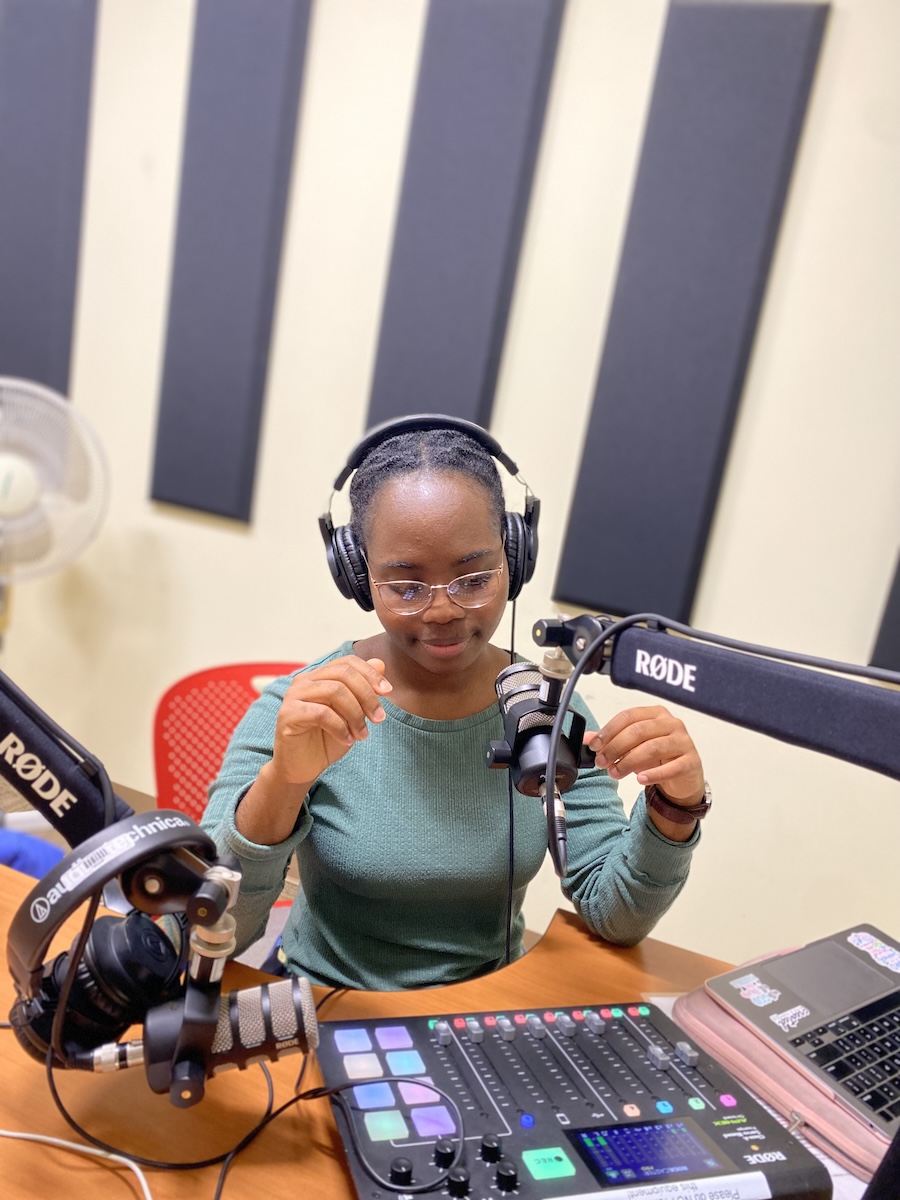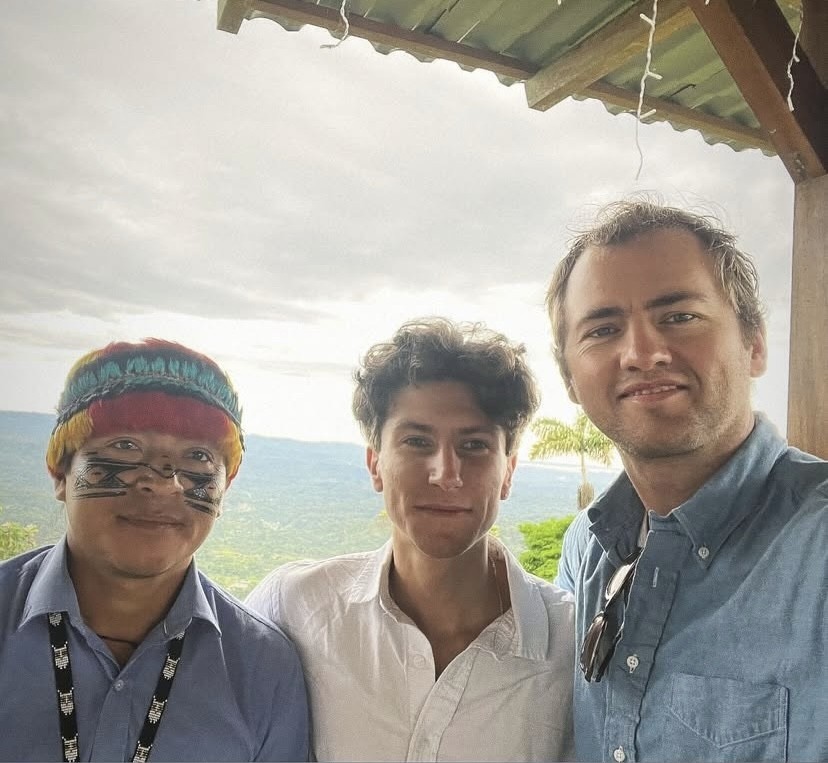Working on the Maine Coast: Students Get Involved in Fisheries, Island Research
By Rebecca GoldfineSeveral students this summer have internships with local nonprofits that are working to sustain the natural resources and communities of coastal Maine.
Samantha Garvey ’16 and Ben Jurcic ’17 are interning at the Gulf of Maine Research Institute, and Matthew Gutierrez ’16 is interning with the Island Institute. Two other students, Alana Luzzio ’17 and Dana Bloch ’17, are helping with the state’s Maine Coastal Mapping Initiative, which is charting the seabed along Maine’s coast. You can read more about Luzzio’s contribution to the project here.
Working on the Maine Coast
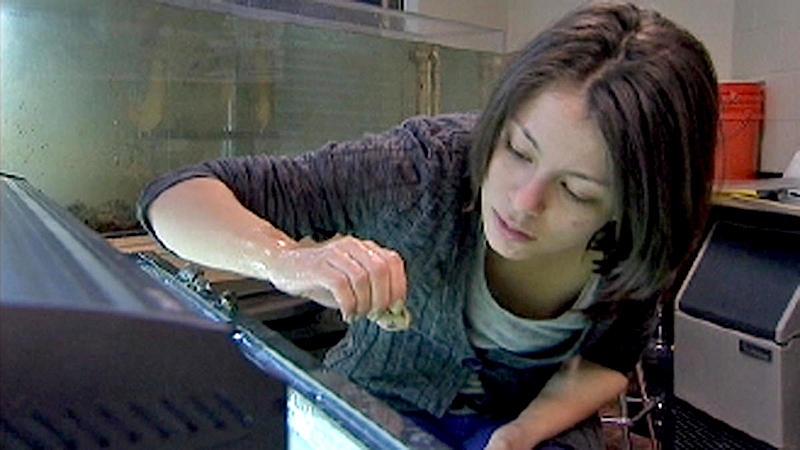 Samantha Garvey ’16 is helping the Gulf of Maine Research Institute determine the effectiveness of its 12-year-old Marine Resource Education Program.
Samantha Garvey ’16 is helping the Gulf of Maine Research Institute determine the effectiveness of its 12-year-old Marine Resource Education Program.
GMRI is a nonprofit based in Portland, Maine, that is working to protect the fisheries industry. One of its tactics has been to provide fisheries stakeholders, including fishermen, with the latest fisheries science and information about fisheries management. Garvey’s job is to find out whether the program is succeeding in creating more “leaders in the fishing industry,” she explained.
Between 800 and 900 people from federal fishery management regions have participated in the marine resource workshops, according to Garvey. She is sending surveys to as many of these alumni as she could asking them their opinions on the program and how active they are now in fishery policy. She is also surveying the workshops’ presenters and the members of regional fishery management councils.
At Bowdoin, Garvey is majoring in earth and oceanographic science and environmental studies. After conducting research on sea star locomotion and osmotic stress in roundworms during the past two summers, she said she wanted a different kind of marine-related internship this summer. “I’m interested in marine conservation and science,” Garvey said. “And you need a policy and management background to do marine conservation.”
Garvey plans to attend the inaugural Marine Science Semester at Bowdoin’s Coastal Studies Center this fall.
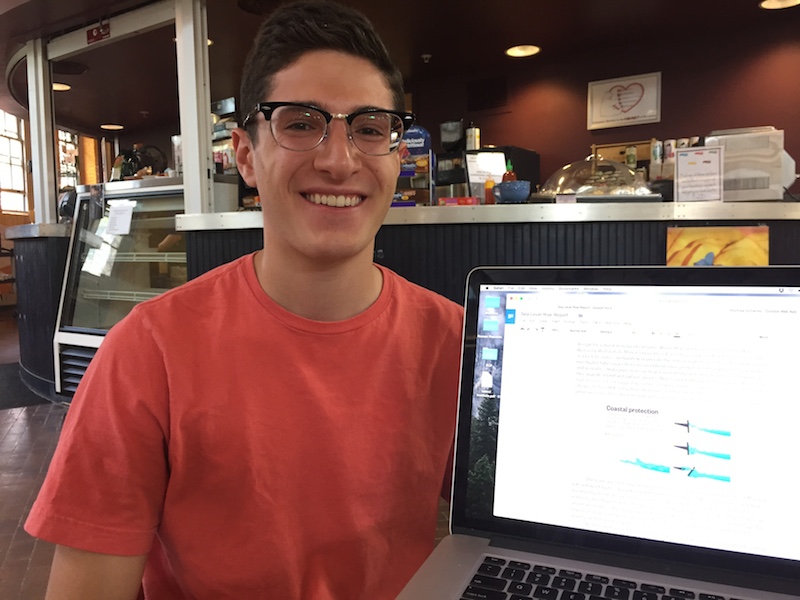 Matthew Gutierrez ’16 is interning part-time for the Island Institute in Rockland, Maine, researching how sea level rise could impact Maine’s island communities and how they might respond. He’s also working for Bowdoin Dining this summer.
Matthew Gutierrez ’16 is interning part-time for the Island Institute in Rockland, Maine, researching how sea level rise could impact Maine’s island communities and how they might respond. He’s also working for Bowdoin Dining this summer.
The Island Institute works to sustain the people, communities and traditional industries of Maine’s islands. One of the areas the organization is interested in investigating is how islands might cope with climate change. To help gather data about this, the institute asked Gutierrez to put together a preliminary report on climate-driven sea surges and flooding.
To research his report, Gutierrez read scholarly articles and looked into how other coastal communities are addressing the issue. In his final write-up, he describes how a sea rise from one meter to six meters could affect Maine’s islands. Then he turns to possible solutions. He recommends restoring natural structures, such as beaches and wetlands, rather than building sea walls or other barricades. “Beaches are the best defense,” Gutierrez said. “Wave energy is blocked by a beach.” Wetlands help absorb storm surges by acting like sponges that slowly release storm water.
Though Gutierrez is a history major, he said he wanted to work on an environmental project this summer, and that he hopes to work in the environmental field after he graduates. “I feel very strongly about conservation,” he said. “I’d be lying if I didn’t admit there are times when I am doing my research I get depressed.” But he’s been buoyed by his summer work, he added. “Nature has the solutions, we just need to look in the right places,” he said.
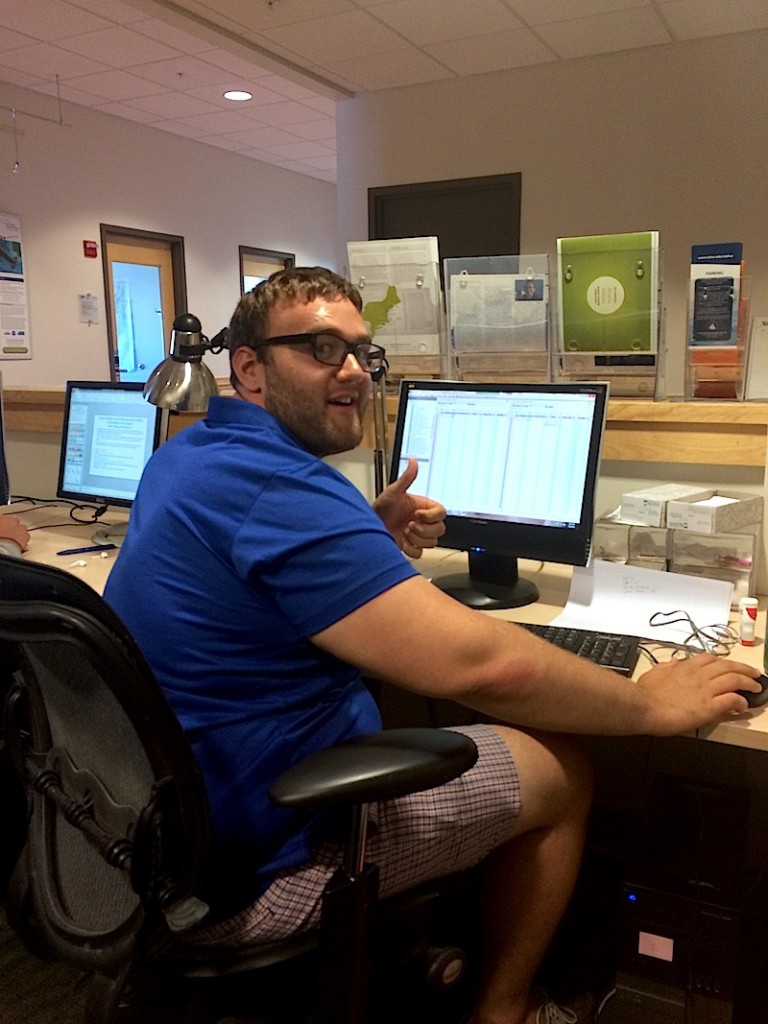 Ben Jurcic ’17, like Garvey, is at the Gulf of Maine Research Institute this summer. He is helping its economist, Jenny Sun, research emerging lobster markets in China and how Maine’s lobster industry might take advantage of this trend. Jurcic has a grant from the Bowdoin College Alumni Council Internship Fund to support his summer internship.
Ben Jurcic ’17, like Garvey, is at the Gulf of Maine Research Institute this summer. He is helping its economist, Jenny Sun, research emerging lobster markets in China and how Maine’s lobster industry might take advantage of this trend. Jurcic has a grant from the Bowdoin College Alumni Council Internship Fund to support his summer internship.
As China’s middle class has grown wealthier, its appetite for lobster has increased, Jurcic explained. At the moment, Canada processes and exports more lobster to China than Maine does because it lands more lobsters — and, critically, more hard-shelled lobsters. Hard-shelled lobsters fare better in the long journey to China’s fish markets than soft-shelled lobsters do, according to Jurcic.
After analyzing lobster landings, exports, prices and other data, Jurcic and Sun will determine how Maine might compete more effectively in the growing China lobster trade. Possibly Maine could act as a middle agent and import some of Canada’s hard-shelled lobster to then turn around and export, or the state could process, freeze and ship more of its soft-shelled lobster meat.
Despite working on an economic project this summer, Jurcic is not an economics major — he is majoring in environmental studies and biology. But he said he’d like to learn more about the field. “What I am interested in career-wise is resource management, and economics is part of that,” he said.

